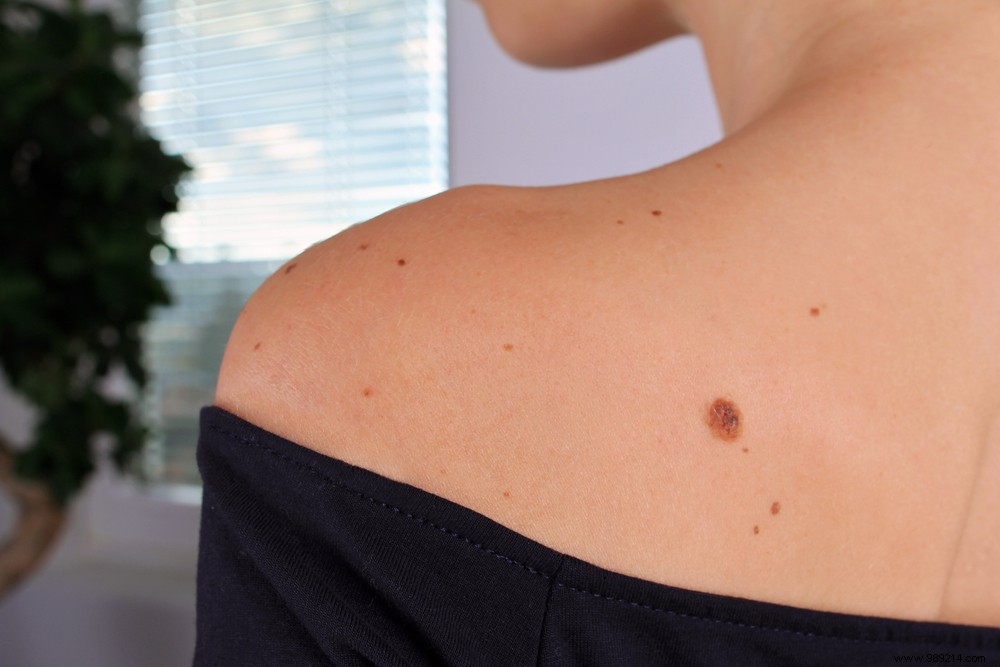
It is important to keep an eye on your moles. The sooner you see an anomaly, the greater the chance you will be on time!
It is expected that one in five Dutch people will develop skin cancer. 90 percent of melanomas are treatable if detected early. It is therefore important that you keep a close eye on your moles. This is how you do it:
Make sure you know what your skin and (birth) spots look like. In addition to inspecting the highly visible areas, check your scalp and ask someone else to look at your back. Don't forget to look at your palms and soles and don't skip the intimate parts.
Read also: ‘Fables about safe tanning‘
As a mnemonic you can use the ABCDE-rege l use. These are the things you should pay attention to:
Asymmetric
Is the spot asymmetrical?
Border
Does the birthmark have a jagged edge?
Colour
Is the spot different colors? A deviating color such as black, blue or gray can also be a reason to have the stain checked.
Diameter
Is the diameter greater than six millimeters?
Evolution
Has the spot changed? Among other things, pay attention to whether the mole changes size or shape. Blood, scabs and pain are reasons to make an appointment with your doctor.
Taking pictures regularly can help you keep track of whether your moles are changing. Nowadays there is an app for almost everything, including to check your moles. With SkinVision you can take pictures, analyze and keep an eye on your skin.
It is wise to have your skin checked regularly. If you are in doubt about a birthmark or spot on your skin, make an appointment with your doctor, so you will not be left in doubt.
The sun is a major culprit. That doesn't mean you should completely avoid the sun, but do apply a high factor every two hours (even if it doesn't seem very sunny) and stay in the shade in bright sun, especially between 12 noon and 3 PM. /P>